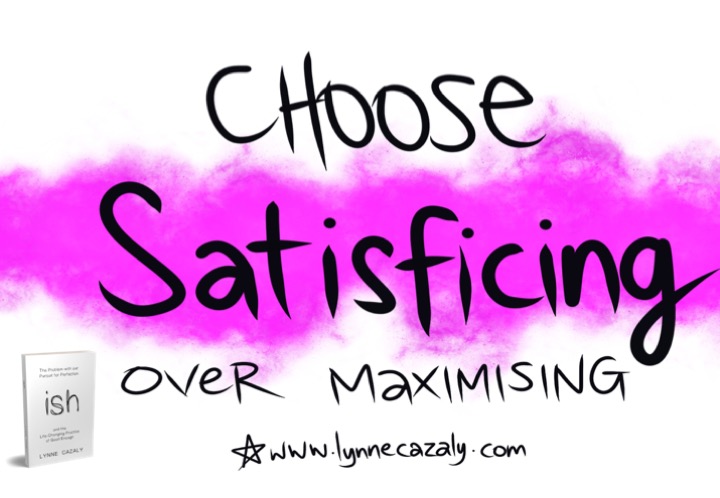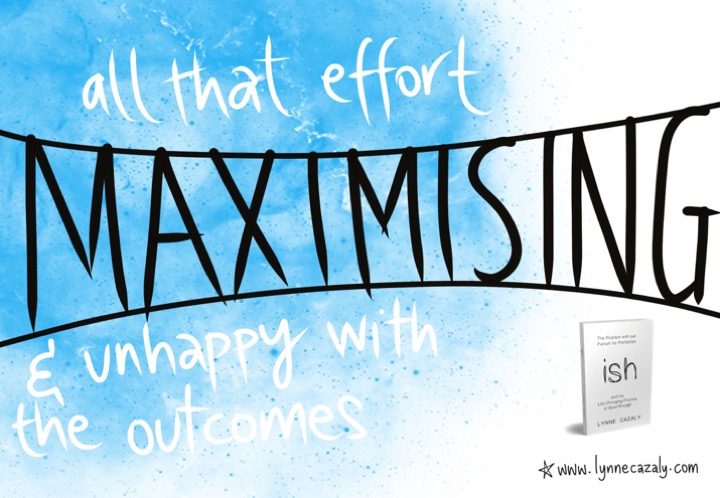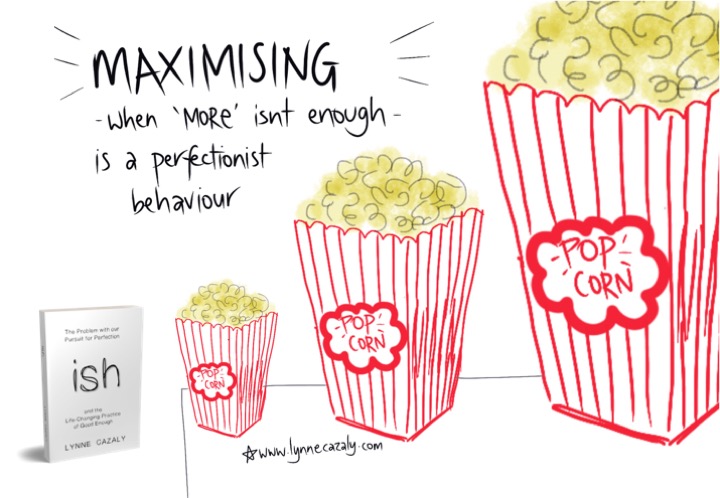Choose satisficing over maximising
 Sunday, August 11, 2019 at 10:48PM
Sunday, August 11, 2019 at 10:48PM  When we're working on a task or activity at some point we need to say, ‘Enough. It's satisfactory. That will suffice.’ 'Satisfactory’ and ‘suffice’ were cleverly combined in Nobel Prize–winning economist Herbert Simon's Theory of Satisficing.
When we're working on a task or activity at some point we need to say, ‘Enough. It's satisfactory. That will suffice.’ 'Satisfactory’ and ‘suffice’ were cleverly combined in Nobel Prize–winning economist Herbert Simon's Theory of Satisficing.
This decision-making theory says look at alternatives and go with the best. Make a choice. It will do, it is good enough.
In my book ‘ish: The Problem with our Pursuit for Perfection and the Life-Changing Practice of Good Enough’, ish means somewhat, to some extent. Ish is about satisficing.
Maximising is not good for us. Perfectionists (called ‘maximisers’ by Simon):
- exhaustively seek the best options
- compare everything against others to an unhealthy degree
- expend excess time and energy, and
- end up unhappier with the outcomes.
Ish is the opposite; it's about being a satisficer. We:
- accept good enough
- not obsess over the options
- move on after deciding, and
- end up being happier with outcomes.
It's good enough!





















